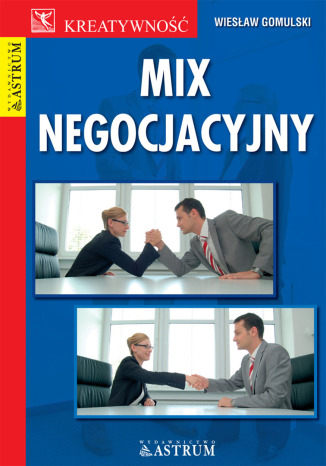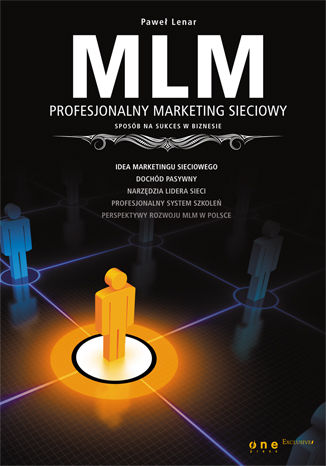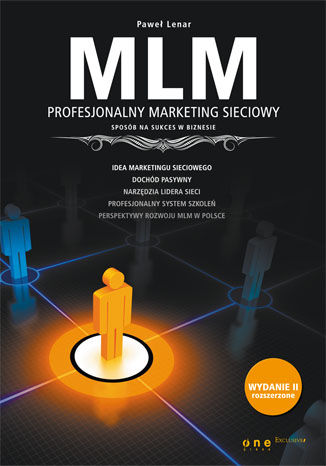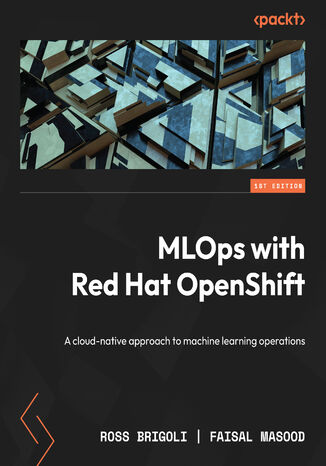Kategorie
-
- Bitcoin
- Bizneswoman
- Coaching
- Controlling
- E-biznes
- Ekonomia
- Finanse
- Giełda i inwestycje
- Kompetencje osobiste
- Komputer w biurze
- Komunikacja i negocjacje
- Mała firma
- Marketing
- Motywacja
- Multimedialne szkolenia
- Nieruchomości
- Perswazja i NLP
- Podatki
- Polityka społeczna
- Poradniki
- Prezentacje
- Przywództwo
- Public Relation
- Raporty, analizy
- Sekret
- Social Media
- Sprzedaż
- Start-up
- Twoja kariera
- Zarządzanie
- Zarządzanie projektami
- Zasoby ludzkie (HR)
-
- Architektura i wnętrza
- BHP
- Biznes i Ekonomia
- Dom i ogród
- E-Biznes
- Ekonomia i finanse
- Ezoteryka
- Finanse
- Finanse osobiste
- Firma
- Fotografia
- Informatyka
- Kadry i płace
- Kobieca
- Komputery, Excel
- Księgowość
- Kultura i literatura
- Naukowe i akademickie
- Ochrona środowiska
- Opiniotwórcze
- Oświata
- Podatki
- Podróże
- Psychologia
- Religia
- Rolnictwo
- Rynek książki i prasy
- Transport i Spedycja
- Zdrowie i uroda
-
- Aplikacje biurowe
- Bazy danych
- Bioinformatyka
- Biznes IT
- CAD/CAM
- Digital Lifestyle
- DTP
- Elektronika
- Fotografia cyfrowa
- Grafika komputerowa
- Gry
- Hacking
- Hardware
- IT w ekonomii
- Pakiety naukowe
- Podręczniki szkolne
- Podstawy komputera
- Programowanie
- Programowanie mobilne
- Serwery internetowe
- Sieci komputerowe
- Start-up
- Systemy operacyjne
- Sztuczna inteligencja
- Technologia dla dzieci
- Webmasterstwo
-
- Antologie
- Ballada
- Biografie i autobiografie
- Dla dorosłych
- Dramat
- Dzienniki, pamiętniki, listy
- Epos, epopeja
- Esej
- Fantastyka i science-fiction
- Felietony
- Fikcja
- Humor, satyra
- Inne
- Klasyczna
- Kryminał
- Literatura faktu
- Literatura piękna
- Mity i legendy
- Nobliści
- Nowele
- Obyczajowa
- Okultyzm i magia
- Opowiadania
- Pamiętniki
- Podróże
- Poemat
- Poezja
- Polityka
- Popularnonaukowa
- Powieść
- Powieść historyczna
- Proza
- Przygodowa
- Publicystyka
- Reportaż
- Romans i literatura obyczajowa
- Sensacja
- Thriller, Horror
- Wywiady i wspomnienia
-
- Archeologia
- Bibliotekoznawstwo
- Filmoznawstwo
- Filologia
- Filologia polska
- Filozofia
- Finanse i bankowość
- Geografia
- Gospodarka
- Handel. Gospodarka światowa
- Historia i archeologia
- Historia sztuki i architektury
- Kulturoznawstwo
- Lingwistyka
- Literaturoznawstwo
- Logistyka
- Matematyka
- Medycyna
- Nauki humanistyczne
- Pedagogika
- Pomoce naukowe
- Popularnonaukowa
- Pozostałe
- Psychologia
- Socjologia
- Teatrologia
- Teologia
- Teorie i nauki ekonomiczne
- Transport i spedycja
- Wychowanie fizyczne
- Zarządzanie i marketing
-
- BHP
- Historia
- Kodeks drogowy. Prawo jazdy
- Nauki prawne
- Ochrona zdrowia
- Ogólne, kompendium wiedzy
- Podręczniki akademickie
- Pozostałe
- Prawo budowlane i lokalowe
- Prawo cywilne
- Prawo finansowe
- Prawo gospodarcze
- Prawo gospodarcze i handlowe
- Prawo karne
- Prawo karne. Przestępstwa karne. Kryminologia
- Prawo międzynarodowe
- Prawo międzynarodowe i zagraniczne
- Prawo ochrony zdrowia
- Prawo oświatowe
- Prawo podatkowe
- Prawo pracy i ubezpieczeń społecznych
- Prawo publiczne, konstytucyjne i administracyjne
- Prawo rodzinne i opiekuńcze
- Prawo rolne
- Prawo socjalne, prawo pracy
- Prawo Unii Europejskiej
- Przemysł
- Rolne i ochrona środowiska
- Słowniki i encyklopedie
- Zamówienia publiczne
- Zarządzanie
-
- Afryka
- Albumy
- Ameryka Południowa
- Ameryka Środkowa i Północna
- Australia, Nowa Zelandia, Oceania
- Austria
- Azja
- Bałkany
- Bliski Wschód
- Bułgaria
- Chiny
- Chorwacja
- Czechy
- Dania
- Egipt
- Estonia
- Europa
- Francja
- Góry
- Grecja
- Hiszpania
- Holandia
- Islandia
- Litwa
- Łotwa
- Mapy, Plany miast, Atlasy
- Miniprzewodniki
- Niemcy
- Norwegia
- Podróże aktywne
- Polska
- Portugalia
- Pozostałe
- Przewodniki po hotelach i restauracjach
- Rosja
- Rumunia
- Słowacja
- Słowenia
- Szwajcaria
- Szwecja
- Świat
- Turcja
- Ukraina
- Węgry
- Wielka Brytania
- Włochy
-
- Filozofie życiowe
- Kompetencje psychospołeczne
- Komunikacja międzyludzka
- Mindfulness
- Ogólne
- Perswazja i NLP
- Psychologia akademicka
- Psychologia duszy i umysłu
- Psychologia pracy
- Relacje i związki
- Rodzicielstwo i psychologia dziecka
- Rozwiązywanie problemów
- Rozwój intelektualny
- Sekret
- Seksualność
- Uwodzenie
- Wygląd i wizerunek
- Życiowe filozofie
-
- Bitcoin
- Bizneswoman
- Coaching
- Controlling
- E-biznes
- Ekonomia
- Finanse
- Giełda i inwestycje
- Kompetencje osobiste
- Komunikacja i negocjacje
- Mała firma
- Marketing
- Motywacja
- Nieruchomości
- Perswazja i NLP
- Podatki
- Polityka społeczna
- Poradniki
- Prezentacje
- Przywództwo
- Public Relation
- Sekret
- Social Media
- Sprzedaż
- Start-up
- Twoja kariera
- Zarządzanie
- Zarządzanie projektami
- Zasoby ludzkie (HR)
-
- Antologie
- Ballada
- Biografie i autobiografie
- Dla dorosłych
- Dramat
- Dzienniki, pamiętniki, listy
- Epos, epopeja
- Esej
- Fantastyka i science-fiction
- Felietony
- Fikcja
- Humor, satyra
- Inne
- Klasyczna
- Kryminał
- Literatura faktu
- Literatura piękna
- Mity i legendy
- Nobliści
- Nowele
- Obyczajowa
- Okultyzm i magia
- Opowiadania
- Pamiętniki
- Podróże
- Poezja
- Polityka
- Popularnonaukowa
- Powieść
- Powieść historyczna
- Proza
- Przygodowa
- Publicystyka
- Reportaż
- Romans i literatura obyczajowa
- Sensacja
- Thriller, Horror
- Wywiady i wspomnienia
-
- Filozofie życiowe
- Komunikacja międzyludzka
- Mindfulness
- Ogólne
- Perswazja i NLP
- Psychologia akademicka
- Psychologia duszy i umysłu
- Psychologia pracy
- Relacje i związki
- Rodzicielstwo i psychologia dziecka
- Rozwiązywanie problemów
- Rozwój intelektualny
- Sekret
- Seksualność
- Uwodzenie
- Wygląd i wizerunek
- Życiowe filozofie
Mity wojny domowej. Hiszpania 1936-1939
Książka hiszpańskiego historyka Pio Moi stała się bestsellerem w Hiszpanii - w ciągu ostatnich 4 lat doczekała się ona tam aż 36 wydań. Tematem książki jest jeden z najważniejszych i najbardziej kontrowersyjnych epizodów w historii XX wieku, a mianowicie wojna domowa w Hiszpanii. Wojna ta na długie lata ukształtowała międzynarodowy etos walczącej lewicy. Powszechna wiedza o tym konflikcie pochodzi zazwyczaj nie z opracowań historyków, lecz z dzieł artystów, które mocniej oddziałują na masową świadomość. Do dzieł takich należy np. powieść "Komu bije dzwon" Ernesta Hemingwaya, obraz "Guernica" Pabla Picassa czy filmy fabularne "Ziemia i wolność", "Fiesta", a ostatnio "Labirynt fauna". Tymczasem, jak dowodzi Pio Moa, dzieła te nie oddają prawdy o tamtym konflikcie, ale budują mit służebny wobec jednej ze stron konfliktu. Oparta na bogatym materiale źródłowym praca hiszpańskiego historyka obala owe funkcjonujące nadal w świadomości zbiorowej stereotypy.
Czy można humorystycznie opisać współczesną rzeczywistość za pomocą pojęć, postaci i motywów zaczerpniętych z mitologii starożytnych Greków i Rzymian? Z pewnością tak!Dowodzi tego zbiór ponad dwustu dwuwersowych fraszek autorstwa Ewy Mierzejewskiej zebranych w tomiku pt. "Mity źdźbłem żartu odkurzone czyli zbiór fraszek z panteonem".Wszak i dzisiaj czyha na nas wszędzie strzała podstępnego Amora, za dyrektorskim biurkiem tkwi niejeden gromowładny Zeus, a z morza przy sopockim molo co rusz wynurza się jakaś Afrodyta, burząc spokój zgromadzonych tam wielbicieli Heliosa. I jak świat światem , wszystkie śmiertelniczki będą składać ofiary na ołtarzu Hebe - bogini młodości, poddając się coraz bardziej wyrafinowanym zabiegom, niwelującym wysiłki złośliwego Chronosa...A każdy twórca będzie mieć nadzieję, że jego praca nie okaże się... syzyfowa. Niech więc Was natchną dobrzy bogowie do skosztowania owych rymów! Znak czasów Dzisiaj para znika w pościeli, ...nim ją Amor zdąży ustrzelić!Flirt z blondynką Skończyła się gniewu łuną,wyprawa po złote runo...Szef o Neptunie - Jest analogia między nami,obaj rządzimy... bałwanami!
Mityczna historia Polski i mitologia słowiańska
Kazimierz Szulc: Mityczna historia Polski i mitologia słowiańska. Znakomite, obszerne opracowanie polskich pradziejów, podań, wierzeń, mitów i historii bajecznej. W Mitycznej historii polskiej i mitologii słowiańskiej usiłował ukazać podstawowy zrąb kultury ludowej jako ukształtowany w pełni przed tysiącleciem i wiernie przechowany przez ludową tradycję. Słowa autora kończące to dzieło, opisujące w sposób bardzo obszerny i szczegółowy naszą ojczystą niepisaną historię brzmią tak: Idzie o to, ażebyśmy się poznali na tych cudownych i nieprzebranych skarbach, jakie wśród nas się znajdują i żebyśmy chcieli, umieli z nich pełnymi garściami czerpać. Czułbym się szczęśliwy, gdybym powyższą pracą do tego się przyczynił.
Hermia Stone, Ewelina Nawara, Maria Zdybska, Gosia Lisińska, ...
Miłość, która połączyła boginie i bogów z herosami czy nawet zwykłymi śmiertelnikami zasługiwała na ponowne opowiedzenie. Wyzwanie podjęło siedem utalentowanych polskich autorek, przed którymi postawiono trudne zadanie — retelling mniej lub bardziej znanych mitów, w formie atrakcyjnej dla współczesnej czytelniczki. Przed wami kipiąca od emocji lektura. Opowieści pełne miłości, namiętności i niezwykłych wydarzeń... Czy pozwolisz porwać się do świata mitów? Autorki: Hermia Stone, Ewelina Nawara, Maria Zdybska, Gosia Lisińska, Agnieszka Zawadka, Aga Kalicka, Aleksandra Pisarska
E-book – "Mix negocjacyjny". Seria kreatywność. Seria książek naukowych i popularnonaukowych Negocjacje są coraz bardziej powszechną metodą porozumiewania się ludzi, językiem komunikowania się. Kształtują relacje biznesowe i społeczne, są też narzędziem pracy w tych dziedzinach. Współczesny menedżer, ekspert kierujący projektem czy handlowiec powinni być dobrze obeznani z tematyką negocjacji – o ile chcą dobrze wykonywać swoje zadania. Kultura negocjacji przenika również do naszego życia prywatnego – swoje relacje społeczne coraz częściej ujmujemy w myśl zasad negocjacyjnych. W tej sytuacji istnieje potrzeba opracowania modelu mixu negocjacyjnego – narzędzia porządkującego warsztat pracy negocjatorów i ułatwiającego prowadzenie negocjacji w sposób efektywny i satysfakcjonujący. Taki właśnie model przedstawia jego twórca – Wiesław Gomulski. W swym nowatorskim opracowaniu dotyczącym zarówno negocjacji biznesowych, jak i społecznych, prezentuje ujęcie negocjacji jako dziedziny wiedzy naukowej i jako praktyki biznesowej i społecznej przydatnej dla każdego,kto się negocjacjami zajmuje zawodowo lub zajmować będzie. Tę nowoczesną koncepcję warsztatu efektywnego negocjatora autor poleca tym wszystkim, którzy chcą twórczo rozwijać teorię i praktykę negocjacji.
Miyuki Ishikawa - Położna z Piekła Rodem
W 1948 roku, w zimny i wilgotny wieczór, dwóch japońskich funkcjonariuszy policji patrolowało bardzo dobrze sobie znane ulice Shinjuku w Tokio. Jeden z nich z nie do końca wyjaśnionych przyczyn postanowił zatrzymać samotnego rowerzystę. Coś w nim wzbudziło podejrzenia policjantów. Mężczyzna był zarządcą domu pogrzebowego. Na pytanie, co robi tak późno na dworze, odparł, że wiezie do domu mandarynki, które otrzymał od krewnego. Funkcjonariusze obejrzeli rower i postanowili zajrzeć do przywiązanej do bagażnika skrzynki na owoce. Po jej otwarciu zobaczyli jakieś tkaniny, a pod nimi malutkie zwłoki noworodka. Z czasem okazało się, że nie było to jedyne makabryczne odkrycie. W toku śledztwa policjanci dotarli do domowego oddziału położniczego w małym prywatnym przybytku zarządzanym przez pięćdziesięciodwuletnią położną Miyuki Ishikawę, później nazwaną „położną z piekła rodem…”.
MizantropKomedia w pięciu aktach Wstęp I Pierwiastki osobiste w Mizantropie. — Młodość Moliera. — Powrót do Paryża. — Pierwsze utarczki. Mizantrop jest obok Tartufe’a najwyższym szczytem twórczości Moliera; zarazem sztuką, którą — zwłaszcza w ostatnim stuleciu — ze wszystkich sztuk Molierowskich najwięcej się zajmowano, która zrodziła najwięcej sprzecznych sądów. Jest poniekąd w teatrze Moliera tym, czym Hamlet w teatrze Szekspira. Bo też ze wszystkich dzieł Moliera jest to najbardziej złożone, a „dwa wieki komentarzy i wykładów zaciemniły je jeszcze”, jak trafnie powiada Juliusz Lemaître. [...]Molire (Molier)Ur. 15 stycznia 1622 r. w Paryżu Zm. 17 lutego 1673 r. w Paryżu Najważniejsze dzieła: Pocieszne wykwintnisie (1659), Szkoła żon (1662), Świętoszek (1664), Don Juan (1665), Mizantrop (1666), Skąpiec (1668), Szelmostwa Skapena (1671), Chory z urojenia (1673) Właśc. Jean Baptiste Poquelin. Francuski komediopisarz (do dziś zaliczany do najwybitniejszych w historii literatury europejskiej), dyrektor teatru i aktor; cieszył się uznaniem i opieką króla Ludwika XVI. W Polsce jego dzieła przekładano i wystawiano od XVII wieku. Był synem tapicera, ale postanowił nie iść w ślady ojca. Od dziecka interesowały go przedstawienia uliczne. Studiował filozofię i prawo, by ostatecznie pójść za głosem wczesnej fascynacji i poświęcić życie scenie. Zmarł na atak serca grając w Chorym z urojenia. autor: Aneta Mościcka Kupując książkę wspierasz fundację Nowoczesna Polska, która propaguje ideę wolnej kultury. Wolne Lektury to biblioteka internetowa, rozwijana pod patronatem Ministerstwa Edukacji Narodowej. W jej zbiorach znajduje się kilka tysięcy utworów, w tym wiele lektur szkolnych zalecanych do użytku przez MEN, które trafiły już do domeny publicznej. Wszystkie dzieła są odpowiednio opracowane - opatrzone przypisami oraz motywami.
Komedia Moliera oparta zarówno na wątkach obyczajowych, jak i na cechach charakterologicznych bohaterów. Mizantropia głównego bohatera Alcesta rodzi się z postawy bezwzględnej szczerości wobec ludzi, bez liczenia się z ich uczuciami i zabiegania o ich względy. Alcest bez wahania głosi krytykę osób ze swojego otoczenia, co oczywiście rodzi stosowne reakcje. Czy Alcest wytrwa mimo wszystko w przekonaniu o słuszności swojej postawy?
Mizerna, cicha... Mizerna, cicha, Stajenka licha, Pełna niebieskiej chwały; Oto leżący, Przed nami śpiący, W promieniach Jezus mały. Nad nim Anieli W locie stanęli I pochyleni klęczą; Z włosy złotymi Z skrzydły białymi Pod malowaną tęczą. Wielkie zdziwienie, Wszelkie stworzenie, Cały świat orzeźwiony; Mądrość Mądrości, Światłość światłości, Jezus wcielony. I oto mnodzy Ludzie ubodzy Radzi oglądać Pana; Pełni natchnienia, Pełni zbawienia, Upadli na kolana. Długo czekali, Długo wzdychali, Aż niebo rozgorzało, Piekło zawarte, Niebo otwarte, Słowo ciałem się stało. Śpi jeszcze senne Dziecię promienne, W ciszy ubogiej strzechy; Na licach białych, Na ustach małych, Migają się uśmiechy. [...]Teofil LenartowiczUr. 27 lutego 1822 w Warszawie na Powiślu Zm. 3 lutego 1893 we Florencji Syn zubożałego szlachcica, z zawodu kancelista sądowy. Autor wielu wierszy utrzymanych w stylistyce ludowej (m. in. Kalina, Złoty kubek), zebranych w tomikach Lirenka i Zachwycenie. Był nazywany ?lirnikiem mazowieckim? i wysoko ceniony przez C. K. Norwida, podobnie jak on związanego ze środowiskiem Cyganerii Warszawskiej. Konspirator, uczestnik powstania 1848 roku, po którym musiał udać się na emigrację. Mimo że był samoukiem, z powodzeniem wykładał we Włoszech literaturę słowiańską. W 1861 ożeniony z Zofią Szymanowską, za przykładem której zajął się rzeźbą. Pochowany w Krakowie na Skałce. Przeczytaj artykuł o autorze w Wikipedii Kupując książkę wspierasz fundację Nowoczesna Polska, która propaguje ideę wolnej kultury. Wolne Lektury to biblioteka internetowa, rozwijana pod patronatem Ministerstwa Edukacji Narodowej. W jej zbiorach znajduje się kilka tysięcy utworów, w tym wiele lektur szkolnych zalecanych do użytku przez MEN, które trafiły już do domeny publicznej. Wszystkie dzieła są odpowiednio opracowane - opatrzone przypisami oraz motywami.
Miziołki wracają, czyli Kaszydło rządzi
Rodzina Miziołków istnieje naprawdę. Od pierwszego wydania książki upłynął szmat czasu. Jej bohaterom przybyło lat, a książce kolejnych dodruków. W międzyczasie Dynastia Miziołków była nagradzana, tłumaczona, a nawet weszła do podręczników, co wprawiło w osłupienie całą rodzinę. Autorkę wielokrotnie pytano: Kiedy dalszy ciągDynastii? Wymigiwała się od odpowiedzi, zajęta innymi projektami. Aż przyszedł dzień, kiedy zabrakło jej wykrętów i w głowie pojawił się pomysł na kontynuację tym razem z pomocą Kaszydła, siostry Miziołka. I oto oni: Miziołek-maturzysta, Kaszydło-nastolatka i Mały Potwór-dziewięcioletni umysł ostry jak brzytwa. Wszelkie podobieństwo osób, nazwisk i zdarzeń zamieszczonych w książce, do prawdziwych, jest NIEPRZYPADKOWE Pozdrawiam serdecznie! Mamiszon
Badanie historii ludzkości od czasów starożytnych do początków XXI wieku skłania do stwierdzenia, że główną rolę motoryczną spełniały w tym procesie dwa czynniki - popęd seksualny i mizoginia - przy czym w obu wypadkach rezultatem było utworzenie się przewagi fizycznej, prawnej i psychicznej mężczyzn nad kobietami. Zjawisko mizoginii było tak powszechne i tak bardzo infekowało wszystkie dziedziny życia od średniowiecza nawet po wiek XX, że nie sposób wyłączyć go z badań, jeśli mają one być prowadzone uczciwie. Tak powstała wielka literatura o kobietach, analizująca ich życie także w oderwaniu od problemów macierzyństwa i pracy domowej, ukazująca walkę o dostęp do wykształcenia, o zdobycie praw obywatelskich i o uznanie wreszcie, że kobieta jest człowiekiem, choć było to jeszcze w połowie XX wieku negowane. Badanie historii ludzkości od czasów starożytnych do początków XXI wieku skłania do stwierdzenia, że główną rolę motoryczną spełniały w tym procesie dwa czynniki - popęd seksualny i mizoginia - przy czym w obu wypadkach rezultatem było utworzenie się przewagi fizycznej, prawnej i psychicznej mężczyzn nad kobietami. Fakty te nie zostały przez zawodowych historyków zanalizowane dostatecznie starannie i przedstawione w sposób nie budzący wątpliwości w opracowaniach naukowych i podręcznikach. Literatura na temat mizoginii jest niezwykle uboga. To milczenie badaczy nie jest przypadkiem. Należy wziąć je pod uwagę i podjąć prace tak potrzebne, aby lepiej zrozumieć współczesne problemy i potrzebę działań na miarę XXI wieku.
Wśród rybaków mewy nazywa się mjewami. Ptaki te najczęściej żyją w większych lub mniejszych stadach. Wspólnie łatwiej jest im polować i spędzać czas nad morskim brzegiem. Jeśli jakaś mewa pojawia się samotnie, najprawdopodobniej pełni funkcję zwiadowcy lub jest chora i zbyt słaba, by połączyć się ze stadem. Jak w każdej zwierzęcej gromadzie, zdarzają się i wyjątki. Jednym z nich jest piękna i silna mewa, którą nazywano Samotnicą". Nie wszyscy wiedzieli jednak, że za jej samotnym życiem kryje się nie indywidualny wybór, a tragiczna historia...
Joanna Mueller Somnambóle fantomowe Przejęznaczenia symbóliczne Mleczenie wdziecięwstąpienie napędza mi stracha w wigilię powstań z martwych i zmartwionych niech udrożni chłonna kantyczka otchłanne konstelacje kołysań grobek wydłubiemy grabkami postawimy babelkę z piasku a trzewia podziemi otworzymy łopatką osłupiałą w obojnaczy obojczyk a jak już dokopiemy się piekła koci ... Joanna Mueller ur. 13 listopada 1979 Najważniejsze dzieła: Somnambóle fantomowe (2003), Zagniazdowniki/Gniazdowniki (2007), Wylinki (2010), intima thule (2015) Poetka, eseistka, redaktorka, wielodzietna mama, niegdyś sygnatariuszka Manifestu neoglingwistycznego. Wydała cztery tomy poetyckie oraz dwie książki eseistyczne. Redaktorka książek: Solistki, Antologia poezji kobiet (19892009) (Warszawa 2009, razem z Marią Cyranowicz i Justyną Radczyńską) oraz Warkoczami. Antologia nowej poezji (Warszawa 2016, wraz z Beatą Gulą i Sylwią Głuszak). Pisuje również wiersze dla dzieci. Mieszka w Warszawie, gdzie m.in. współprowadzi seminarium o literaturze kobiet Wspólny Pokój. Kupując książkę wspierasz fundację Nowoczesna Polska, która propaguje ideę wolnej kultury. Wolne Lektury to biblioteka internetowa, rozwijana pod patronatem Ministerstwa Edukacji Narodowej. W jej zbiorach znajduje się kilka tysięcy utworów, w tym wiele lektur szkolnych zalecanych do użytku przez MEN, które trafiły już do domeny publicznej. Wszystkie dzieła są odpowiednio opracowane - opatrzone przypisami oraz motywami.
Związek Linki i Adriana od zawsze był burzliwy, jak to w relacji dwójki indywidualistów. Teraz przed nimi najtrudniejsza próba. Dwie kreski na teście ciążowym są dla nich szokiem. Czy ich relacja wyjdzie z tej próby zwycięsko? Przecież to nie tak miało być Autorka bestsellerowej serii dla młodzieży, Joanna Jagiełło, w czwartej i ostatniej książce cyklu, podejmuje trudny temat nastoletniej ciąży.W swojej wielowymiarowej powieści opowiada historię starą jak świat, która wciąż na nowo zaskakuje młodych ludzi i ich najbliższych. Historię, która w tej powieści zatacza krąg. Linka, teraz oczekująca na to, co w jej życiu będzie najważniejsze, musi też uporać się z przeszłością własnej rodziny. Znowu. I tym razem być może skutecznie.
MLM. Profesjonalny marketing sieciowy - sposób na sukces w biznesie
Idea marketingu sieciowego Dochód pasywny Narzędzia lidera sieci Profesjonalny system szkoleń Perspektywy rozwoju MLM w Polsce Zacznij zarabiać pasywnie! Marketing sieciowy, zwany inaczej wielopoziomowym albo MLM (skrót od angielskiego Multi Level Marketing), łączy w sobie dwa ważne terminy: "marketing", czyli przekazywanie produktu lub usługi od usługodawcy lub producenta do odbiorcy, oraz "wielopoziomowy", co z kolei odnosi się do systemu naliczania wynagrodzeń poszczególnym dystrybutorom, czyli osobom odpowiedzialnym za dostarczenie produktu lub też usługi do odbiorcy końcowego. Strategia firm działających na zasadzie marketingu sieciowego polega na dystrybucji produktu poza tradycyjną siecią sklepową, co pozwala obniżyć koszty i zmniejszyć ryzyko prowadzenia firmy. Zapewne zastanawiasz się, czy marketing sieciowy to biznes dla Ciebie? Jeśli Twoim celem jest comiesięczny, stabilny i wysoki dochód, jeśli chcesz mieć to, o co większość ludzi zabiega, czyli czas i pieniądze, to marketing sieciowy jest dla Ciebie. Rozpoczęcie własnej działalności w charakterze dystrybutora MLM będzie wymagało sporo pracy, zaangażowania oraz poświęcenia, jednak efekty mogą przerosnąć Twoje oczekiwania. Ta książka pokaże Ci, jak to zrobić. W tej publikacji nie znajdziesz teoretycznych wywodów, które nie sprawdzają się w praktyce dnia codziennego. Jest ona esencją wiedzy na temat postaw i metod pracy, które po prostu przynoszą efekty. Nie ma tu również rozwiązań ślepo przeniesionych ze Stanów Zjednoczonych, Europy Zachodniej czy jakiegokolwiek innego miejsca. Materiał książki znajduje odzwierciedlenie w rzeczywistości i warunkach naszego kraju. Dowiedz się: dlaczego marketing wielopoziomowy nazywany jest biznesem XXI wieku; jak rozpocząć współpracę z firmą działającą w systemie MLM; jak w praktyce stworzyć źródło dochodu pasywnego; jak zostać odnoszącym sukcesy liderem sieci; jakie znaczenie w marketingu sieciowym ma etyka. Patroni medialni:
MLM. Profesjonalny marketing sieciowy - sposób na sukces w biznesie. Wydanie II rozszerzone
Biznes na miarę XXI wieku Pracujesz na etacie, ale marzysz o tym, by wreszcie móc rzucić kierat i zająć się tym, co Cię naprawdę cieszy? A może prowadzisz własną działalność i czujesz, że ukochana firma zaczyna bez reszty pochłaniać Twój czas i energię, nie dając w zamian oczekiwanego wysokiego dochodu? Słowem - chcesz mieć to, o czym marzy większość ludzi - czas i pieniądze, ale nie bardzo wierzysz, że to realne? Otóż wszystko jest możliwe, jeśli wybierze się odpowiednią drogę do celu. Twoją drogą może okazać się MLM - marketing sieciowy, zwany też wielopoziomowym. Trzymasz w rękach dostosowany do naszych realiów poradnik, skierowany do każdego, kto chce praktykować MLM w Polsce. Strategia firm działających na zasadzie marketingu sieciowego polega na dystrybucji produktu poza tradycyjną siecią sklepów, co pozwala obniżyć koszty i zmniejszyć ryzyko prowadzenia firmy. Początki oczywiście są trudne - trzeba włożyć sporo wysiłku, aby dynamicznie wystartować i stworzyć własny zespół. Efekty jednak będą warte poniesionych kosztów - właściwie prowadzony marketing wielopoziomowy odwdzięczy się stabilnym i wysokim dochodem, pozostawiając Ci sporo czasu na realizację prywatnych pasji. Paweł Lenar - przedsiębiorca, trener, autor książek oraz lider aktywnie działający w branży marketingu sieciowego. Laureat prestiżowej nagrody Polish National Sales Awards (Profesjonalny Sprzedawca Roku) w kategorii Menedżer Branży MLM. W krótkim czasie zbudował sprawnie funkcjonującą, wielotysięczną strukturę MLM, rozwijającą się w Polsce oraz kilku innych krajach Europy i na świecie. W swojej działalności stawia na profesjonalizm i rzetelne podejście do biznesu. Specjalizuje się również w tematyce związanej ze sztuką prezentacji. Odwiedź stronę www.PawelLenar.pl.
Kleszcz Magdalena, Łączyk Małgorzata
Wartości wyznaczają horyzont rozwoju człowieka. () Młody człowiek otwiera się na wartości, zwykle w specyficzny tylko dla siebie sposób. Bywa, że deterministyczne nastawia się na ideał, pragnie być najlepszy, podziwiany, ważny. Sposób bycia i wyrażania siebie jest zatem odpowiedzią na tę potrzebę i daje również obraz tego, co jest dla niego prymarne, a więc wartościowe. Z tego też powodu, mając na uwadze istotne funkcje wartości, w wymiarze zarówno subiektywnym, jak i obiektywnym, podjęto próbę ustalenia, na czym koncentruje się młodzież licealna. () w perspektywie problematyki podjętej w tej książce ważne było również poznanie, w jakim zakresie młodzież doświadcza lub doświadczała samotności i jak sobie z nią radzi. Nie bez powodu dociekano również zainteresowań i pasji młodzieży, które wypełniają jej wolny czas, a ponadto stanowią podstawę i przestrzeń rozwoju, autoafirmacji i samourzeczywistnienia. [] Przedmiot badań stanowiły zatem trzy kategorie: wartości, samotność i pasje.
MLOps with Red Hat OpenShift. A cloud-native approach to machine learning operations
MLOps with OpenShift offers practical insights for implementing MLOps workflows on the dynamic OpenShift platform. As organizations worldwide seek to harness the power of machine learning operations, this book lays the foundation for your MLOps success. Starting with an exploration of key MLOps concepts, including data preparation, model training, and deployment, you’ll prepare to unleash OpenShift capabilities, kicking off with a primer on containers, pods, operators, and more.With the groundwork in place, you’ll be guided to MLOps workflows, uncovering the applications of popular machine learning frameworks for training and testing models on the platform.As you advance through the chapters, you’ll focus on the open-source data science and machine learning platform, Red Hat OpenShift Data Science, and its partner components, such as Pachyderm and Intel OpenVino, to understand their role in building and managing data pipelines, as well as deploying and monitoring machine learning models.Armed with this comprehensive knowledge, you’ll be able to implement MLOps workflows on the OpenShift platform proficiently.
Maria Konopnicka Młocka Łupu, cupu! łupu, cupu! Cepami w stodole; Poczerniało, posmutniało Nasze czyste pole. Łupu, cupu! łupu, cupu! Tęgo bijmy w snopy! Będziem mieli tej pszeniczki Po dwa korce z kopy. Łupu, cupu! łupu, cupu! Aż ręce ustały; Ta pszeniczka, sandomierka, Słynie na świat cały! ----- T... Maria Konopnicka Ur. 23 maja 1842 r. w Suwałkach Zm. 8 października 1910 r. we Lwowie Najważniejsze dzieła: O Janku Wędrowniczku, O krasnoludkach i sierotce Marysi, Nasza szkapa, Miłosierdzie gminy, Rota, Dym, Mendel Gdański Poetka, publicystka, nowelistka, tłumaczka. Zajmowała się krytyką literacką. Pisała liryki stylizowane na ludowe i realistyczne obrazki (W piwnicznej izbie). Wydawała cykle nowel (Moi znajomi, Nowele, Na drodze). W otoczeniu ośmiorga swoich dzieci tworzyła bajki (Na jagody). Jako poetka, inspiracji szukała w naturze (Zimowy poranek). Swoje wiersze publikowała głównie w prasie. Wiersz patriotyczny Rota konkurował z Mazurkiem Dąbrowskiego o miano hymnu Polski. Wiele jej utworów powstało podczas podróży po Europie (Italia). Ostatnie lata życia poświęciła poematowi Pan Balcer w Brazylii. autor: Bartłomiej Chwil Kupując książkę wspierasz fundację Nowoczesna Polska, która propaguje ideę wolnej kultury. Wolne Lektury to biblioteka internetowa, rozwijana pod patronatem Ministerstwa Edukacji Narodowej. W jej zbiorach znajduje się kilka tysięcy utworów, w tym wiele lektur szkolnych zalecanych do użytku przez MEN, które trafiły już do domeny publicznej. Wszystkie dzieła są odpowiednio opracowane - opatrzone przypisami oraz motywami.
Młoda dziewczyna mówi Cząbry rzekły: kocha ciebie tak, Że do stóp twych padł, jak ranny ptak! Na dzień przyjścia zładź mu się i zwól. — «Nie schlebiajcie, próżne cząbry pól: Zmiłuj się Bóg nad mą duszą! » Stokroć rzekła: Czemu dałaś mu Całą wiarę dziewiczego snu? [...]Jean MoréasUr. 15 kwietnia 1856 w Atenach Zm. 30 kwietnia 1910 w Saint-Mandé (w środkowej Francji) Najważniejsze dzieła: Kantyleny, Pielgrzym, Stances Własc. Ioánnis A. Papadiamantópoulos (??????? ?. ??????????????????). Poeta i krytyk literacki, Grek piszący po francusku. Twórca pojęcia symbolizmu w poezji, autor manifestu symbolistów. Syn prawnika, wnuk słynnego bohatera walk o niepodległość Grecji, wychowany w Atenach. Studiował prawo na Sorbonie w Paryżu, gdzie szybko stał się ważną postacią cyganerii artystycznej. Jego poezja wyraża nastroje dekadenckie, utwory debiutanckie pozostają pod wpływem twórczości Baudelaire'a i Verlaine'a. Kupując książkę wspierasz fundację Nowoczesna Polska, która propaguje ideę wolnej kultury. Wolne Lektury to biblioteka internetowa, rozwijana pod patronatem Ministerstwa Edukacji Narodowej. W jej zbiorach znajduje się kilka tysięcy utworów, w tym wiele lektur szkolnych zalecanych do użytku przez MEN, które trafiły już do domeny publicznej. Wszystkie dzieła są odpowiednio opracowane - opatrzone przypisami oraz motywami.
Jakie tajemnice skrywa tajna baza wojskowa na Pomorzu? Co wydarzyło się w ostatnich dniach zimnej wojny? Michael Wagner, amerykański policjant urodzony w Polsce, z wyróżnieniem kończy szkolenie w ośrodku agencji wywiadu wojskowego. Otrzymuje pierwsze zadanie ustalić tożsamość Josepha, agenta, który w czasach zimnej wojny przekazywał Rosjanom tajemnice NATO. Ostatni ślad pochodzi sprzed dwudziestu pięciu lat. Już pierwsze pytania rozpętują burzę. Michael cudem uchodzi z życiem, a jego informator zostaje znaleziony martwy na dnie basenu. Jedynym śladem dawnej działalności Josepha jest tajemnicza fotografia. Kto po tylu latach dla ukrycia prawdy wciąż gotów jest zabijać? Wszystkie odpowiedzi znajdują się w Polsce, którą Michael opuścił jako czteroletnie dziecko. Teraz wraca, by zdemaskować szpiega i poznać zaskakującą prawdę o sobie i swej rodzinie. Bardzo aktualna powieść! Szpiegowskie intrygi, filmowe zwroty akcji i przeszłość, od której nie da się uciec. Michał Larek, pisarz i wykładowca
Młoda para + 1 opowiadanie erotyczne
Eliza, zamiast podać drinka, odstawiła go na stolik, a potem podeszła do dziewczyny i pocałowała ją samymi ustami, by na koniec przeciągnąć językiem po jej dolnej wardze. Eliza przymknęła oczy. Całowała się z kobietami, na imprezach podczas studiów to było modne, ale nigdy tak. Zawsze na pokaz, zawsze po to, aby wzbudzić ciekawość mężczyzn, czasem po to, aby szokować. Ten pocałunek był inny, intymny, nasycony erotyzmem. Chciałam zobaczyć, jak smakujesz powiedziała praktycznie w jej usta. I jak smakuję? wyszeptała Eliza. Jej oddech był przyśpieszony, serce waliło jej tak, że miała wrażenie, że zaraz wybuchnie, czuła, że jej wargi zrobiły się nabrzmiałe. Henry poruszał się cicho albo ona była tak bardzo skupiona na Irenie, że nie usłyszała jego kroków. Dziewczyna zadrżała lekko, gdy zdała sobie sprawę, że podszedł do niej, bardziej go poczuła, niż usłyszała. Spodziewam się, że jak grzech odparł, a jego place dotknęły grzbietu jej dłoni. Eliza chciała się odwrócić, ale Irene przyłożyła jej dłoń do policzka, a ona wtuliła się w nią odruchowo. Ja nigdy... nie kochałam się z kobietą odezwała się Eliza cicho. Dłoń Henryka głaskała jej odkryte ramiona, kobieta czuła jego obecność za sobą, blisko i daleko jednocześnie. A chciałabyś? Irene spojrzała jej w oczy badawczo. Niemal się dotykały, dziewczyna po raz pierwszy w życiu czuła się jednocześnie zawstydzona, podniecona i przestraszona." Czy związek może liczyć więcej niż jedną osobę? Czy da się żyć w trójkę i stworzyć udaną relację? Eliza poznaje Irene i Henryka w pracy ma zorganizować ich wesele. Spotkanie to jest początkiem ich wspólnego romansu, który może przerodzić się w coś głębszego, o ile dadzą radę wyjść poza schematy ogólnie przyjęte w społeczeństwie. A nie jest to proste...
Młode wino. O owocach Ducha Świętego
Gdy nieustannie koncentrujemy się na tym, co powinniśmy zrobić, a zapominamy o tym, co otrzymaliśmy, wywracamy wszystko do góry nogami. Zapominamy, że życie chrześcijańskie nie jest przede wszystkim pracą do wykonania, lecz darem do przyjęcia. Otrzymaliśmy nowe życie, aby je przeżyć; młode wino, aby je wypić. To jest naszym podstawowym i w zasadzie jedynym celem. Ufajmy bardziej Duchowi Świętemu niż własnym możliwościom. W tej książce, która w całej pełni czerpie z chrześcijańskiej mistyki, spotykamy się z wyzwaniem, które daje nam wolność. Korzystajmy z tego daru!
Młodości sen Młodości sen, uroczy sen Roztacza krąg cudownych scen, Wśród których walczym na przedzie, I złotem lśniąc, Szlachetnych żądz W kraj bohaterstwa nas wiedzie. Z młodości mar, skrzydlatych mar, Tak szybko złudny znika czar, Tak mało życie nam ziszcza! Topnieje w łzach Fantazyi gmach, Zostają gruzy i zgliszcza! [...]Adam AsnykUr. 11 listopada 1838 r. w Kaliszu Zm. 2 sierpnia 1897 r. w Krakowie Najważniejsze dzieła: Pijąc Falerno, Piosnka pijacka, Między nami nic nie było, Gdybym był młodszy, Jednego serca..., Nad głębiami (cykl sonetów), Daremne żale, Do młodych Poeta, epigon romantyzmu tworzący w epoce pozytywizmu i Młodej Polski, autor dramatów i opowiadań. Syn powstańca 1831 r., zesłańca. Podejmował różne kierunki studiów (rolnicze, medyczne, nauki społeczne), prowadząc działalność spiskową. Był więziony w Cytadeli (1860). W powstaniu styczniowym zaangażowany po stronie ?czerwonych?, był członkiem rządu wrześniowego. Po upadku zrywu uzyskał stopień dra filozofii w Heidelbergu (1866), zaczął wydawać pierwsze utwory w prasie lwowskiej (1864-65). W 1870 r. osiadł w Krakowie, brał czynny udział w życiu samorządowym, był posłem na Sejm Krajowy z ramienia demokratów (1889). Amator Tatr, wiele podróżował (Włochy, Tunezja, Algieria, Cejlon, Indie). Pochowany na Skałce. Kupując książkę wspierasz fundację Nowoczesna Polska, która propaguje ideę wolnej kultury. Wolne Lektury to biblioteka internetowa, rozwijana pod patronatem Ministerstwa Edukacji Narodowej. W jej zbiorach znajduje się kilka tysięcy utworów, w tym wiele lektur szkolnych zalecanych do użytku przez MEN, które trafiły już do domeny publicznej. Wszystkie dzieła są odpowiednio opracowane - opatrzone przypisami oraz motywami.
























